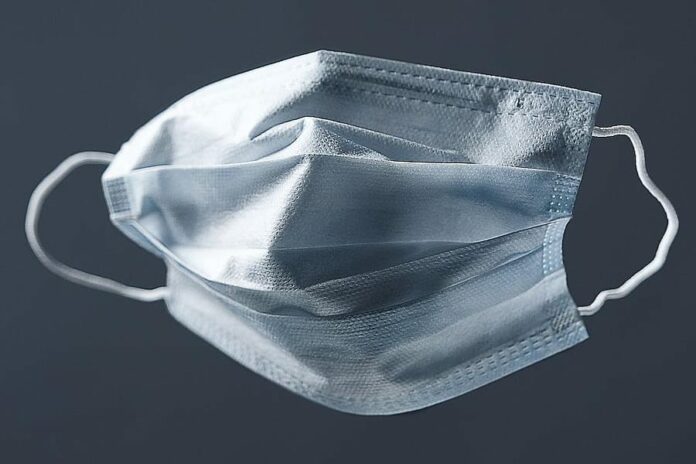Tsutsumani Business Enterprise has been fined R3.5-million by the Competition Commission after it failed to appeal the penalty at the Competition Appeal Court (CAC).
This after the Gauteng-based company allegedly contravened the Competition Act by selling face masks to the SA Police Service (SAPS) at an excessive price during the Covid-19 hard lockdown.
In a judgment handed down on Friday, the Competition Commission welcomed the decision of the CAC, confirming a decision of the Competition Tribunal made in April 2020 which found Tsutsumani guilty of engaging in excessive pricing.
Siyabulela Makunga, spokesperson for the Competition Commission, said: “The matter stemmed from an investigation by the commission following a complaint filed by the SAPS against Tsutsumani for alleged excessive pricing of masks supplied to the SAPS.
“The commission found that Tsutsumani had charged the SAPS excessive prices for the urgent supply of 500 000 three-ply surgical face masks between April 5-29 2020 at a mark-up of 87% per mask, and that the SAPS was a price-taker because of shortage of supply.”
He said Tsutsumani had responded to a request for quotation (RFQ) issued by the SAPS for the urgent procurement of personal protective equipment (PPE) from suppliers.
“The urgent procurement of PPE was necessitated by the advent of the Covid-19 pandemic and the national state of disaster, which required all SAPS staff to wear masks.
“[The] SAPS required 9-million masks per month for use by its staff on the frontline of combating the coronavirus during the lockdown.
“Tsutsumani denied the allegations of excessive pricing.”
First case on excessive pricing
He said this was the first excessive pricing case referred to the tribunal by the commission in the context of a public procurement process during the Covid-19 pandemic.
Competition commissioner Doris Tshepe said: “The CAC judgment underscores the fact that excessive pricing of essential goods and services within the context of public procurement, during a pandemic or national disaster, will not be tolerated by competition authorities.”
The commission stated that it had received a complaint against several companies that responded to the SAPS’ RFQ including the applicant (Tsutsumani).
“The applicant supplied the SAPS with 500 000 surgical face masks at a unit price of R32.50 and generated an income of R16 250 000.
“The applicant, however, denied the allegations of excessive pricing and averred that the SAPS could have rejected or accepted its quotation. It further stated that the supply of masks was a once-off transaction.
“On further investigation, the commission found that the applicant started supplying masks in April 2020 when it responded to the SAPS’ RFQ. It procured 500 000 masks from various entities at an average cost of R17.50 per mask.
“It, however, charged the SAPS R32.50 per mask, being a mark-up of 87% and a margin of 47% per mask.
“According to the commission, the applicant made a profit of R6 586 311, which in its view was excessive.
“It therefore sought an order declaring that the applicant’s conduct contravened the provisions of section 8[1][a] of the act, read with regulation four of the Consumer Protection Regulations.
“It also sought an order interdicting and restraining the applicant from engaging in any such further conduct and for the applicant to be ordered to pay an administrative penalty in terms of section 58[1][a][iii] of the act, which was equal to 10% of its annual turnover during its preceding financial year,” reads the court document.
However, Tsutsumani contended that it was not an active role player in the supply of PPE and that the transaction was once-off, noting that its participation was limited.
Tsutsumani said the SAPS had no obligation to accept its quotation. However, it stated that due to the fact that its product was of a better quality than that of competitors, the SAPS accepted the quotation.
Application dismissed with costs
The review of the matter was handled by CAC judge president Norman Manoim who was assisted by judge Thoba Poyo-Dlwati and judge Shareen Masipa.
“We are of the view that the applicant has no prospects of success in the review and this is another reason why its condonation application should not succeed,” said Manoim in the judgment.
“Perhaps for completeness, we should deal with the issue of the penalty imposed on the applicant.
“The tribunal imposed the administrative penalty in terms of section 59[1] of the act, which empowers it to do so.
“The penalty imposed was 10% of the applicant’s turnover, which is the maximum permissible in terms of section 59[2] for a first-time contravention.
“Nevertheless, the tribunal justified doing so because this figure is significantly lower than the excess profit which Tsutsumani derived from the sale of the masks to SAPS, even if certain costs are included in favour of Tsutsumani.”
Manoim said in terms of section 59(3)(e), one of the factors the tribunal must consider is the level of profit derived from the contravention.
The tribunal’s approach was that even the maximum penalty would not lead to a disgorgement of the excess profit derived from the contravention.
“As we have previously held in Stanley’s Removals, absent a misdirection or fundamental error in methodology, this court has a narrow power to interfere with a penalty imposed by the tribunal.
“In our view, there was nothing improper with the tribunal’s exercise of its power. The review application must fail.
“Accordingly, I make the following order that the review application is dismissed with costs,” said Manoim in the judgment.



